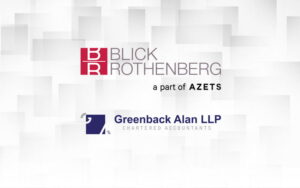Key issues for property investors
The Chancellor has kept her promise of delivering stability in the Corporation Tax regime, which is helpful, but does leave several ’Bear Traps’ that investors in UK property should be aware of
4 April 2025 | Author: Heather Powell
An investor in UK property needs to carefully consider how to finance a property investment
Key issues for property investors
The Chancellor has kept her promise of delivering stability in the Corporation Tax regime, which is helpful, but does leave several ’Bear Traps’ that investors in UK property should be aware of. The most significant of these is the restriction of interest that can be deducted against rental profits when certain thresholds are breached.
Corporate interest restriction
From 2022 the deduction of interest paid by a corporate group when calculating profits chargeable to corporation tax is restricted to the higher of 30% EBITDA or £2,000,000 for the majority of companies. For a property investor this generally results in a restriction of £2,000,000. Any unused interest can be carried forward for five years.
The £2,000,000 limit was introduced when the Bank of England base rate was 0.25%. The current base rate is 4.5%. If an investor had total borrowings of £30,000,000 at 3 over base in April 2022 the interest charge would have been £1,275,000 – well below the threshold. A loan at 4 over base today would have an interest charge of £2,550,000 – £550,000 of interest would have to be paid for which no tax deduction can be obtained in the year of payment.
Whilst we can all highlight that this impacts on the assessment of the viability of projects, and thus investment, in UK real estate, it is unlikely to change so it is critical that investors consider this restriction when considering investments.
Pricing of debt
The UK corporation tax code requires debt from related parties to be priced in line with the pricing and terms that a third party would provide. This is now coming under increasing security from UK tax authorities. If the pricing is considered excessive then an adjustment must be made when calculating the taxable profits of the borrower, a permanently disallowable expense.
The pricing should be determined by market rates at the date of agreeing the loan, or refinancing. Expert advice should be taken given the number of advanced rulings with HMRC agreeing whether they consider the terms to be in accordance with ’market rates’ having fallen in recent years.
Thin Capitalisation
The quantum of debt advanced by a related party is also of interest to the UK tax authorities. If it is greater than the debt that would be provided by a third party, then a tax deduction cannot be claimed – in the view of the UK tax authorities. However, the significant falls in the value of many commercial properties as a result of the Covid pandemic have led to some very interesting situations where third party lenders have extended loans to facilitate the maximum repayment of the loans. The key question is, as with the pricing of debt, what could be negotiated with a third-party lender?
In conclusion
The above are just three areas where an investor in UK property needs to carefully consider how to finance a property investment and then apply this to their investment appraisal. Our team at Blick Rothenberg includes experts who can assist in these complex matters.
Would you like to know more?
If you would like to discuss any of the above and how it impacts you, please speak to your usual Blick Rothenberg contact or Heather Powell using the form below.
Contact Heather















